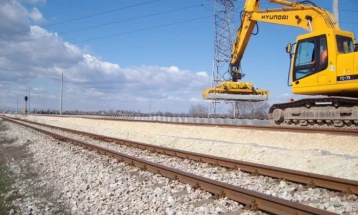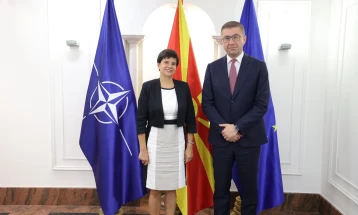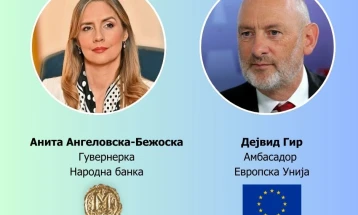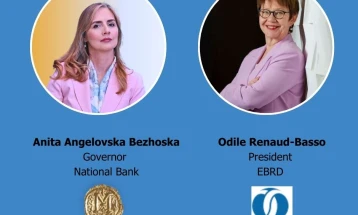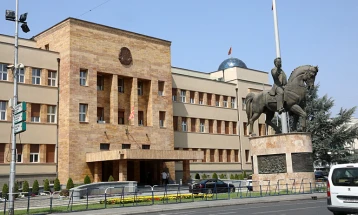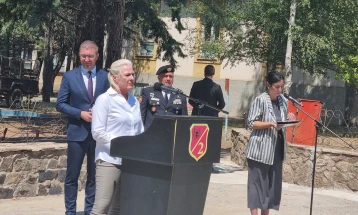ECNWM: Funds for capital investments should increase and be higher next year
- Businessmen told Prime Minister Hristijan Mickoski at a meeting Monday that funds for capital investments in the Budget should increase, not reduce, and need to be higher next year.
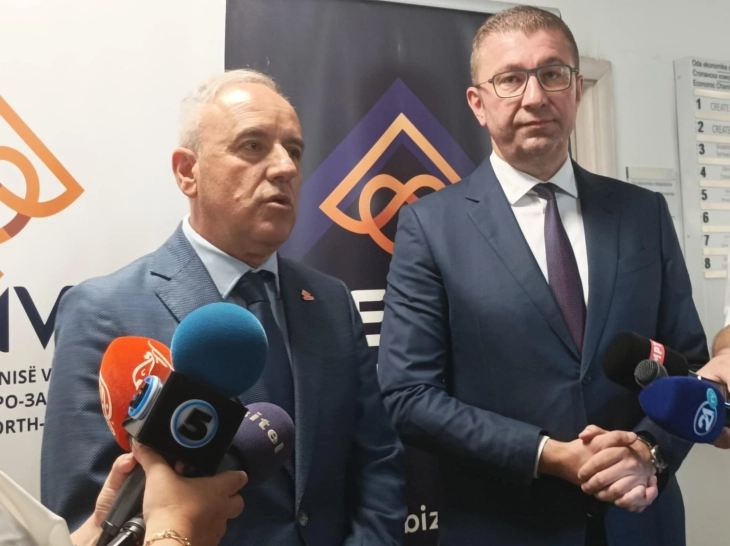
Skopje, 29 July 2024 (MIA) - Businessmen told Prime Minister Hristijan Mickoski at a meeting Monday that funds for capital investments in the Budget should increase, not reduce, and need to be higher next year.
At a meeting with the Economic Chamber of North-West Macedonia (ECNWM), interlocutors discussed the loan from Hungary of EUR 250 million for companies.
PM Mickoski reiterated that the Government's first and foremost priority is to secure more funds in the Budget, which can be achieved if the economic chambers, companies, and the economy in general, are more successful. He also added that the Government will remain a partner.
"The meeting went well and illustrated that the PM both while in opposition and in office is willing to talk to us. We covered many important topics related to the economy, including the EUR 250 million in aid that companies will be able to apply for. One of the key points for companies is interest rates, which are high, from 1 to 6 percent, which is why I believe we will participate and have access to these funds. We spoke about the rebalancing of the Budget and we believe that funds for capital investments should increase, not reduce, and next year they need to be higher seeing as the economy also profits from it. One month into the new Government we are glad that it is focused on the economy. Cooperation will continue," said ECNWM president Mendi Qyra.

Mickoski also added that the meeting was fruitful and constructive.
"The meeting was substantial, and I think we were acquainted with all the challenges companies face. Our top priority and primary interest is the fact that the more revenue we have in the budget, the more there will be investment in education, health, higher pensions, higher wages, agriculture, culture, sports, infrastructure... As a Government, we are focused on working together with companies and helping them grow faster. Therefore, today we talked about the loan of half a billion euros, that is, the loan we took in agreement with the Hungarian Government, which is soon to be officially signed and voted into law by Parliament, and how all that will work to support the economy. The conditions are: 3,35 percent in fixed interest rates for 15 years, a three-year grace period, a loan term of 12 years," Mickoski noted.
He added that meetings will be held with commercial banks to discuss loan placement options.
"What's important is what we don't want to burden the loan with additional demands, because we see it as favorable. The market is perhaps twice as favorable as what commercial banks can provide, and we appreciate that in this way we can help the economy. The second topic of discussion was infrastructure projects, the future, and our plans. On the other hand, the Chamber highlighted the minimum wage and agriculture. It was truly a fruitful discussion. My message is that we need to work together, and we are fully in the service of business. The business should initiate, propose, and in one dialogue overcome those issues. We don't have that practice of the previous governments to gather all chambers in the government building and in half an hour say what we think, give a statement, and leave. That is why we are the ones visiting the chambers and we will continue to do so, listen to ideas and implement them. I will reiterate, the first and main priority is to secure more funds in the Budget, because it is limited. The more successful the chambers, companies, and economy are, the more funds there will be for all the other areas that are needed," Mickoski stressed.

When asked about the Chamber's demand to reduce contributions in order to enable an increase in the minimum wage, Mickoski said that this idea has been reviewed while VMRO-DPMNE was in opposition as well.
"We have talked about it. Today we presented our arguments and concerns. Here, above all, we talked about issues related to collective agreements, inflation... Of course, in the future, we have to find a way to get more people active in the labor market, because today the number of employees is declining, but so is unemployment. This does not mean that the need for workers in the labor market is satisfied, so we need to find a way to re-qualify those hundreds of thousands of people who are still unemployed, motivate them and reintroduce them to the labor market. I think that in the coming period we will succeed in doing so," Mickoski stressed.ssh/ad/
Photo/Video: MIA
